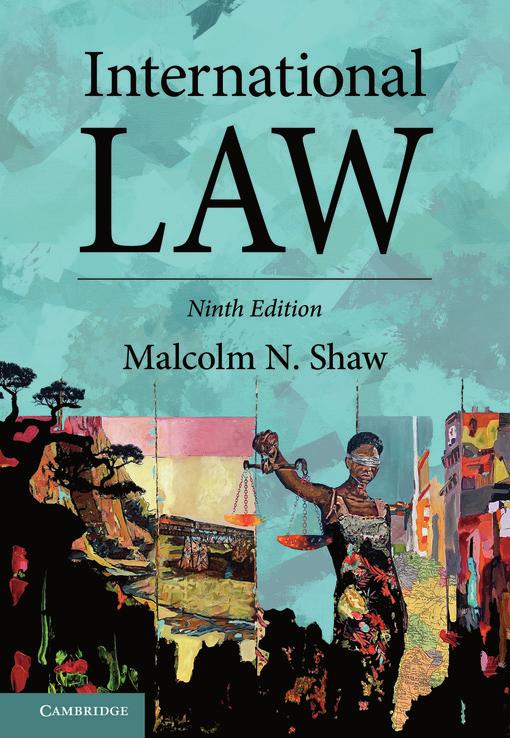
5 minute read
Law
Industry Unbound
The Inside Story of Privacy, Data, and Corporate Power
Ari Ezra Waldman
Northeastern University, Boston
Description
In Industry Unbound, Ari Ezra Waldman exposes precisely how the tech industry conducts its ongoing crusade to undermine our privacy. With research based on interviews with scores of tech employees and internal documents outlining corporate strategies, Waldman reveals that companies don’t just lobby against privacy law; they also manipulate how we think about privacy, how their employees approach their work, and how they weaken the law to make data-extractive products the norm. In contrast to those who claim that privacy law is getting stronger, Waldman shows why recent shifts in privacy law are precisely the kinds of changes that corporations want and how even those who think of themselves as privacy advocates often unwittingly facilitate corporate malfeasance. This powerful account should be ready by anyone who wants to understand why privacy laws are not working and how corporations trap us into giving up our personal information.
Key Features
• The first account to show how informational capitalism operates on the ground • Offers new research on largely inaccessible institutions to broaden common understandings of tech companies • Makes complex theories from disciplines across law and the social sciences accessible while remaining academically rigorous
Contents
Introduction; Part I. Privacy and the Information Industry: 1. A day at the office; 2. Spotting the issues; Part II. A Vicious Cycle: 3. Privacy’s discourses; 4. Privacy compliance; 5. Designing data-extractive technologies; Part III. Power and Resistance: 6. Power; 7. Fighting back; 8. Conclusion.
Additional Information
Level: Graduate students, academic researchers, professionals
September 2021 216 x 138 mm 378pp 978-1-108-49242-3 Hardback £20.00 / US$24.95
The Reasonable Robot
Artifi cial Intelligence and the Law
Ryan Abbott
University of Surrey School of Law
Description
AI and people do not compete on a level-playing fi eld. Self-driving vehicles may be safer than human drivers, but laws often penalize such technology. People may provide superior customer service, but businesses are automating to reduce their taxes. AI may innovate more effectively, but an antiquated legal framework constrains inventive AI. In The Reasonable Robot, Ryan Abbott argues that the law should not discriminate between AI and human behavior and proposes a new legal principle that will ultimately improve human well-being. This work should be read by anyone interested in the rapidly evolving relationship between AI and the law.
Key Features
• Argues for a new principle of artifi cial intelligence (AI) regulation • Offers a resource for those involved in AI policymaking by considering the impact of laws on AI development • Contributes to broader arguments on law and technology while providing a deep dive into the challenges associated with autonomous machines

Contents
Introduction. Artifi cial intelligence and the law; 1. Understanding artifi cial intelligence; 2. Should artifi cial intelligence pay taxes?; 3. The reasonable robot; 4. The artifi cial inventor; 5. Changing intellectual property standards; 6. Punishing artifi cial intelligence; 7. Alternative perspectives on artifi cial intelligence and AI legal neutrality; Third party materials; Index.
Additional Information
Level: Graduate students, academic researchers, general readers
June 2020 229 x 152 mm c.300pp 978-1-108-47212-8 Hardback £84.99 / US$110.00
Portuguese (Brazil) rights sold.

Life after Privacy
Reclaiming Democracy in a Surveillance Society
Firmin DeBrabander
Maryland Institute College of Art
Description
Privacy is gravely endangered in the digital age, and we, the digital citizens, are its principal threat, willingly surrendering it to avail ourselves of new technology, and granting the government and corporations immense power over us. In this highly original work, Firmin DeBrabander begins with this premise and asks how we can ensure and protect our freedom in the absence of privacy. Can—and should—we rally anew to support this institution? Is privacy so important to political liberty after all? DeBrabander makes the case that privacy is a poor foundation for democracy, that it is a relatively new value that has been rarely enjoyed throughout history—but constantly persecuted—and politically and philosophically suspect. The vitality of the public realm, he argues, is far more significant to the health of our democracy, but is equally endangered—and often overlooked—in the digital age.

Key Features
• Provides an interdisciplinary analysis, drawing upon academic fields including philosophy, politics, media studies, law, and history • Examines the peculiarities of online behavior and explains how our interaction with digital media facilitates the surrender of privacy • Questions both the historical and philosophical identity of privacy
Contents
Preface; 1. Confessional Culture; 2. Defenses of Privacy; 3. Big Plans for Big Data; 4. The Surveillance Economy; 5. Privacy Past and Present; 6. The Borderless, Vanishing Self; 7. Autonomy and Political Freedom; 8. Powerful Publics; Conclusion.
Additional Information
Level: Graduate students, academic researchers
September 2020 229 x 152 mm 180pp 978-1-108-81191-0 Paperback £19.99 / US$24.95
International Law
Ninth edition
Malcolm N. Shaw
Essex Court Chambers/Lauterpacht Centre for International Law, University of Cambridge
Description
International Law is the defi nitive and authoritative text on the subject. It has long been established as a leading authority in the fi eld, offering an unbeatable combination of clarity of expression and academic rigour, ensuring understanding and analysis in an engaging and authoritative style. Explaining the leading rules, practice and caselaw, this treatise retains and develops the detailed referencing which encourages and assists the reader in further study. This new edition has been fully updated to refl ect recent developments. In particular, it has expanded the treatment of space law and of international economic law, and introduced new sections on cyber operations and cyber warfare, as well as refl ecting the Covid-19 crisis. Both clarifying fundamental principles and facilitating additional research, International Law is invaluable for students and for those occupied in private practice, governmental service and international organisations.
Key Features
• The defi nitive and authoritative text on the subject and using invaluable referencing, International Law is a favourite of both students and professionals • Comprehensive coverage includes general principles and practice, including key substantive fi elds today such as international economic law and international criminal law

• Explains relevant theories and international practice clearly and thoroughly without overwhelming the reader
Contents
Preface to the ninth edition; 1. The nature and development of international law; 2. International law today; 3. Sources; 4. International law and municipal law; 5. The subjects of international law; 6. The international protection of human rights; 7. Individual criminal responsibility in international law; 8. Recognition; 9. Territory; 10. The law of the sea; 11. Jurisdiction; 12. Immunities from jurisdiction; 13. State responsibility; 14. International environment law; 15. The law of treaties; 16. State succession; 17. The settlement of disputes by peaceful means; 18. The international court of justice; 19. International law and the use of force by states; 20. International humanitarian law; 21. The united nations; 22. International organisations.
Additional Information
Courses: International Law Departments: Law Level: Undergraduate students, graduate students
July 2021 244 x 170 mm 1308pp 978-1-108-47774-1 Hardback £110.00 / US$143.00











